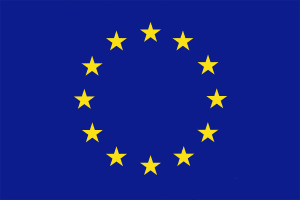Crisis Point: Is the worst behind us?
2014 is predicted to herald the end of the Great Recession. The last six years have been defined by demand-deficient decline, headlines hammering home the implications of credit rating downgrades, rampant unemployment and unsustainable debt.
Political disunity struck as interparty disputes brought Washington D.C. to a halt, the scene no less concerning in Europe where the European Union edged upon breakup. Every day brought the same news stories, warning of a Grexit (Greece’s exit from the EU). It seemed plausible that Germany, France and Britain, economic champions of the EU, may be next in line after Portugal, Ireland, Greece and Spain.
The rise of Europe’s nationalist parties including France’s Front Nationale, Britain’s UKIP and Greece’s Golden Dawn were a dark imitation of the 1930s. Riots and protest further served to drain the national coffers, the greatest protest of all emerging in France with the election of socialist economics.
In light of false statistics alluding to a Triple-Dip recession, legislation discouraging banks from lending, and journalistic self-fulfilling prophecies, it is surprising that demand accelerated at all!
Winter 2013, however, seemed to carry the heat of a new set of seasons for the western world. Discourse of deterioration is absent from current affairs, which is typically a sign that things are on the mend. Britain, having seemingly suffered the return of stagflation with reports of negative growth and 5.2 percent inflation, finds itself in an increasingly comfortable position with predictions of 2.7 percent growth in 2014.
The picture is positive for much of Europe with Greece and Spain both projected to grow in the New Year. The political climate is far from peaceful, this year featuring European Elections and a Scottish referendum. Investors seem content with economic factors, nonetheless, and the Dow Jones industrial average and the S&P 500 ended 2013 with record highs. When endof-year optimism is reinforced by such excellent GDP predictions, it may not be too early to speculate another boom in the west.
The same prosperous picture is not necessarily true of the emerging markets. China has modestly revised its growth targets from 8
percent to 7.5 percent. Several of its provinces have been a little more modest, suggesting rates of 7 percent growth. India and Brazil both came under fire in 2013 while political unrest in Turkey cause the loss of 28 percent of its stock benchmark. Emerging market growth levels remain impressive and are expected to contribute to 70 percent of global growth in the years to come. Investors are not solely interested in the world of 2050 when the splendour of these aforementioned economies is assumed to
outdo that of the western camp.
Amongst the lessons to be learned from 2008 is how abruptly conditions can exacerbate even in Gordon Brown’s Golden Age of ‘no
more boom or bust’. There is great potential in emerging markets, but which firms within these economies show excellent prospects and when results will materialise is uncertain. Therefore it is not altogether surprising to observe that Goldman Sachs Group Inc. has suggested investors cut allocations in developed economies by one third.
The picture is positive for much of Europe with Greece and Spain both projected to grow in the New Year. The political climate is far from peaceful, this year featuring European Elections and a Scottish referendum.
Most intriguing about investor patterns is that bad news is not essential for emerging markets to have a bad day. Warwick’s own
Emerging Markets Forum featured speaker after speaker who were unreservedly confident that these economies will plough ahead in the years to come. The ambiguities created by political concerns and declining growth, however, are enough to make the relatively stable western bloc all the more appealing for short-term investors.
Whatever S&P have said of the British and American likelihood of default, the economies continue to grow and inflation is still decreasing. The respective currencies are testament to international demand for goods and services from these economies. 2014 paves the way for the re-emergence of developed economies, the signs evident in every economic indicators from employment to house prices. It is in this acceleration, as symbolised by the latter, that progress bears the ominous tremors of familiarity reminiscent of 2008.


Comments